Huawei P40 Pro Plus
Two-minute review
The Huawei P40 Pro Plus is a solid 2020 flagship. No, really, it’s solid, weighing significantly more than the vanilla Huawei P40 Pro - unsurprising given the tech required to grab the 10x zoom, optically stabilized photos it can snap. At 226g, that makes it the same weight as the heaviest iPhone, the iPhone 11 Pro Max.
The Huawei P40 Pro Plus costs £1,299 / AU$2,500 (roughly $1,570), making it hundreds more than the Huawei P40 Pro, and therefore the priciest non-foldable Android phone on the scene, outpriced only by the highest spec iPhone.
Jump to…
For that extra money compared to the vanilla P40 Pro, you get a new rear construction, made of ground ceramic powder baked to create a tough finish that’s almost as tough as sapphire glass. The Pro Plus also packs more storage - 512GB - and the crowning glory, that 10x optical zoom lens.
That 8MP 240mm periscope (zoom) camera, however, is only a small part of the P40 Pro Plus’s imaging story. The primary camera is the same 50MP sensor as the rest of the P40 series, complete with optical image stabilization (OIS). There’s also a 3x optical zoom camera, an ultra-wide camera, and a Time of Flight (ToF) depth sensor.
Coupled with a 32MP front camera, from pixels to performance, the P40 Pro Plus is the camera phone you want if pictures are of paramount priority.
Of course, as with any recent Huawei phone, there’s the good, and there’s the bad. If you’re familiar with how the US-China trade war impacted Huawei, in a nutshell, it prevents Huawei from working with US companies, including Google.
Despite the fact new Huawei phones still run the latest version of Android, they don’t work with Wear OS watches, support Google apps like Gmail and Google Home, or support Google Services in third-party apps, like maps within the Zoopla app, for example.
Huawei has been working on solutions, by getting more local and global apps into its own AppGallery, which is there in place of the Google Play Store, and introducing 'Petal Search - Find Apps' to its phones. This tool scours multiple app sources to save users from having to manually download a third-party app store, and it’s most welcome. Parity between Huawei phones and other mainstream Androids has yet to be struck though when it comes to app support.
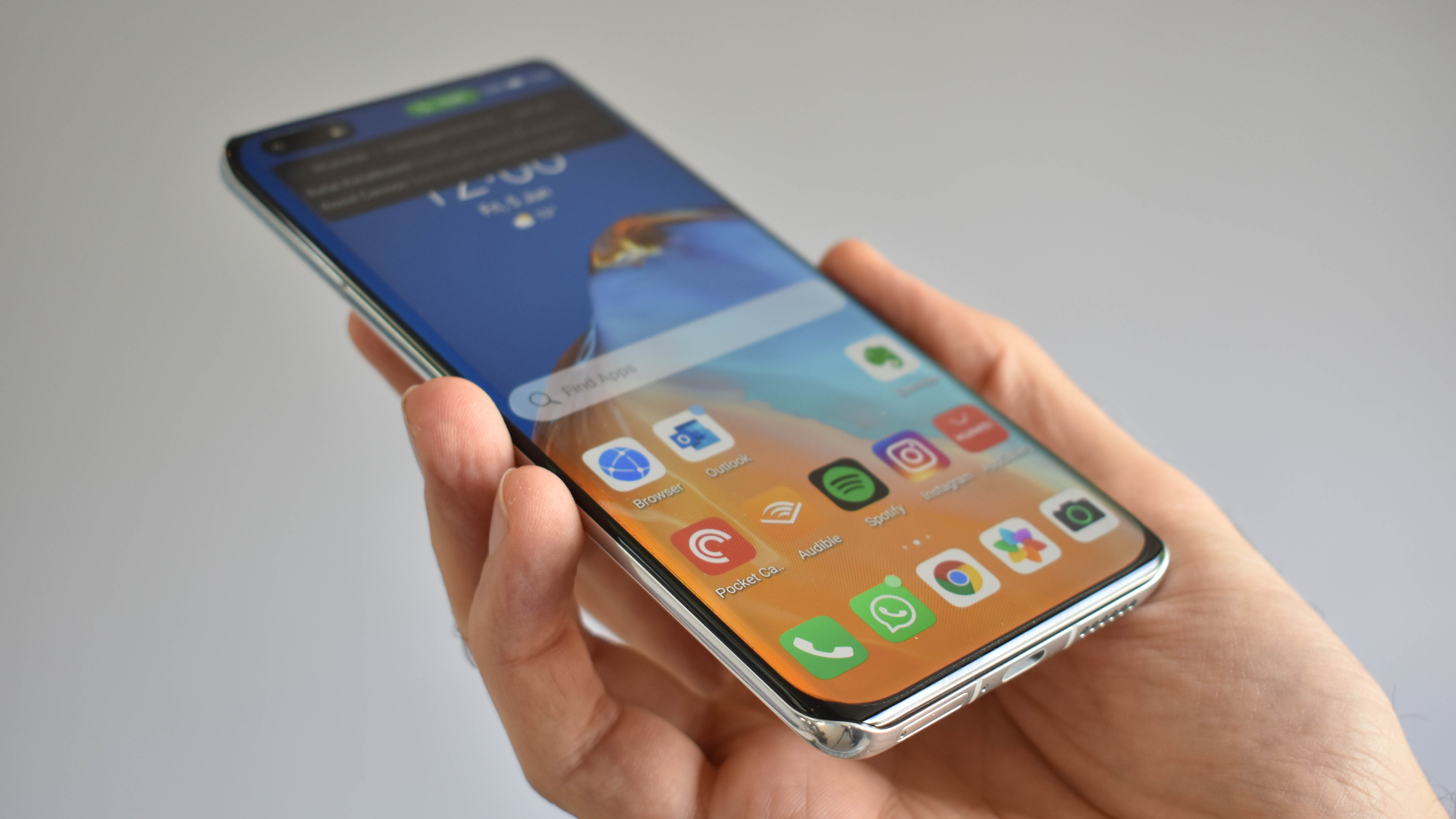
Despite any Google limitations, the Huawei P40 Pro Plus’s software experience is slick from a usability point of view. There’s stacks of power inside, the P40 series introduces some cool multitasking features to the P family, and thanks to the Kirin 990’s radios, the Pro Plus packs amongst the fastest Wi-Fi and 5G speeds available today.
Combined with all-day battery life, fast 40W wired and wireless charging, reverse wireless charging, and over half a terabyte of internal storage, there’s so much to love about the P40 Pro Plus that the fact Huawei is still working against the Google limitations feels like a crying shame.
Ultimately, is the Huawei P40 Pro Plus worth the sky-high asking price? Not for most.
Like the Huawei Mate Xs, the P40 Pro Plus can do something no other phone can. While it can’t transform from tab to phone and back, it can zoom optically 10x, making it one of the most complete pocket imagining systems around.
The Huawei P40 Pro Plus is, therefore, a niche phone and a major flex from Huawei, asserting dominance over other camera phones, even if it isn’t a phone for the masses.
Huawei P40 Pro Plus price and release date
- Costs £1,299 (roughly $1,570 / AU$2,500)
- No US availability, but available in the UK
The Huawei P40 Pro Plus was made available on June 25 across Europe, including the UK, where it costs £1,299 (roughly $1,570 / AU$2,500).
The P40 Pro Plus is the most expensive mainstream Android phone around. As with all Huawei phones, a US release isn’t on the cards. We've not yet heard whether the phone will be coming to Australia.
Available with 512GB storage and 8GB RAM, there’s just one version going on sale, so unless you’re prepared to fork out the €1399 asking price, there’s no way of accessing the P40 Pro Plus’s incredible zoom in a lower storage capacity, lower priced model.
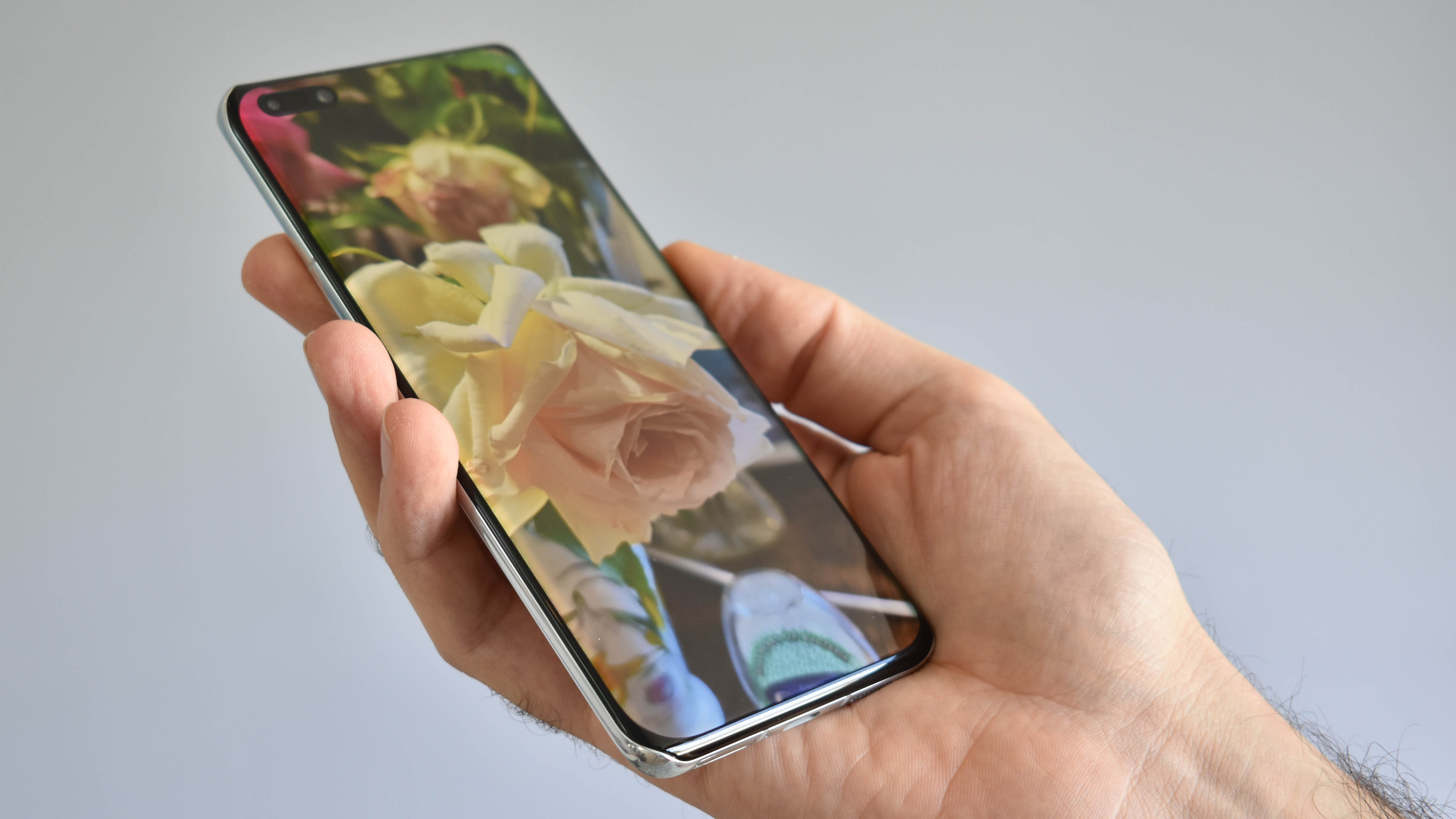
Design
- Ceramic back
- IP68 water and dust resistant
- Heavy and premium
If you’ve seen a P40 Pro, you’ve seen a P40 Pro Plus. The look, feel, and dimensions are all virtually the same.
The Huawei P40 Pro Plus feels excellent, even if it isn’t especially thin, measuring in at 9mm - thicker than the Apple and Samsung competition. It’s heavy, weighing 226g; the same as an iPhone 11 Pro Max. So fans of small, dainty phones will want to look elsewhere. Still, there’s a marked elegance to it.
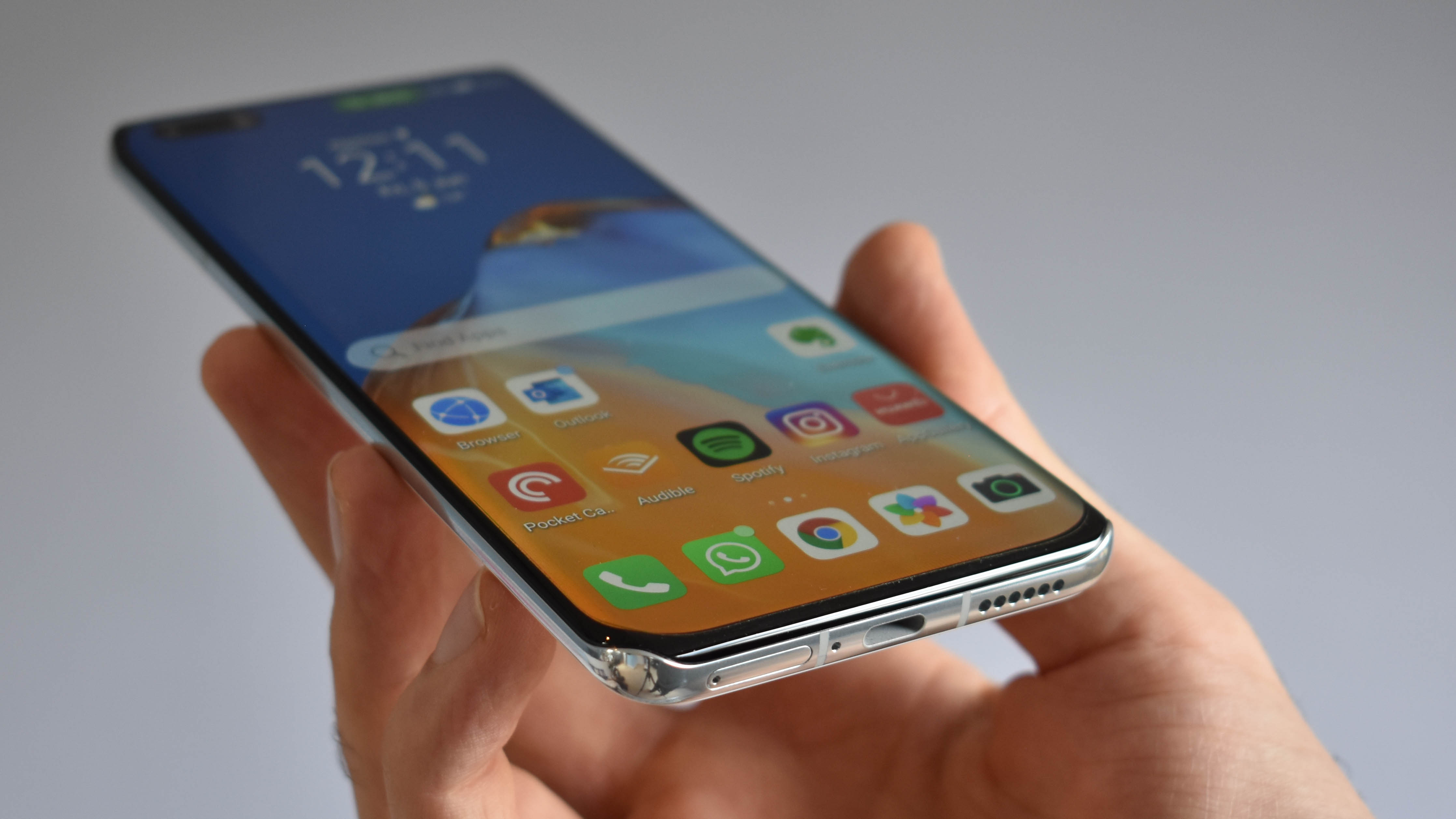
Both the Pro and Pro Plus feature a 'Quad-curve Overflow Display,’ which essentially means they have curved glass at all four edges. With the frame rising at the corners to form metal lips that creep into the screen, the P40 Pros look genuinely unique, and recognizable in a sea of smartphones packing samey design from the front.
The buffed metal frame plays host to a USB-C port, a bottom-firing mono speaker, and a SIM card slot at the base. On the right are all the phone’s buttons, while at the top there's an IR blaster.
Available in high-gloss black or white, a key differentiator between the P40 Pro and Pro Plus is the material used around the back. The pricier Pro Plus uses a glossy ceramic, while the P40 Pro uses traditional glass, available in a glossy or frosted finish.
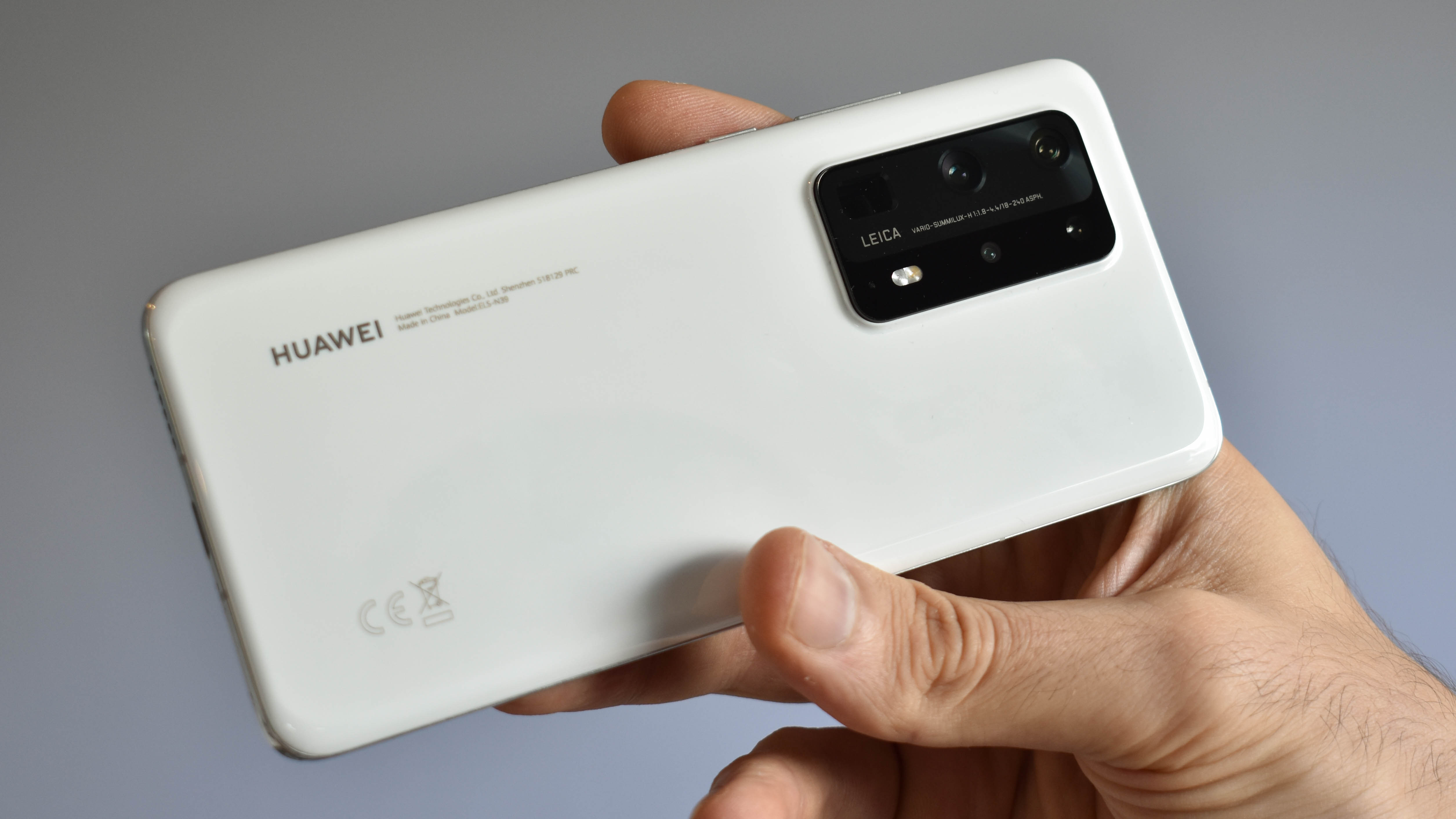
Huawei claims the Pro Plus’s back is almost as tough as sapphire glass, and while we didn’t drop the phone in our week with it, it’s totally unscathed despite us having not used a case while reviewing it.
Additionally, our white version looks pristine, free from fingerprints. Therefore, between its toughness and finish, we’re less inclined to put a case on the white P40 Pro Plus than any other phone we’ve used to date.
Display
- Bright, vibrant 6.58-inch OLED screen
- Big oblong selfie camera cut-out
- 1200 x 2640 pixels - sharp, but not the sharpest
On paper, the Huawei P40 Pro Plus’s display falls behind the best out there, with a lower resolution and refresh rate than the Samsung Galaxy S20 Ultra, and even the much more affordable OnePlus 8 Pro. In reality, however, it’s a beauty.
With a resolution of 1200 x 2640 pixels, which results in a pixel density of 441 pixels-per-inch, it’s sharp, even if it isn’t the sharpest, and the OLED screen tech pops beautifully, with zingy colors, deep blacks, and customizable color temperature and display options.
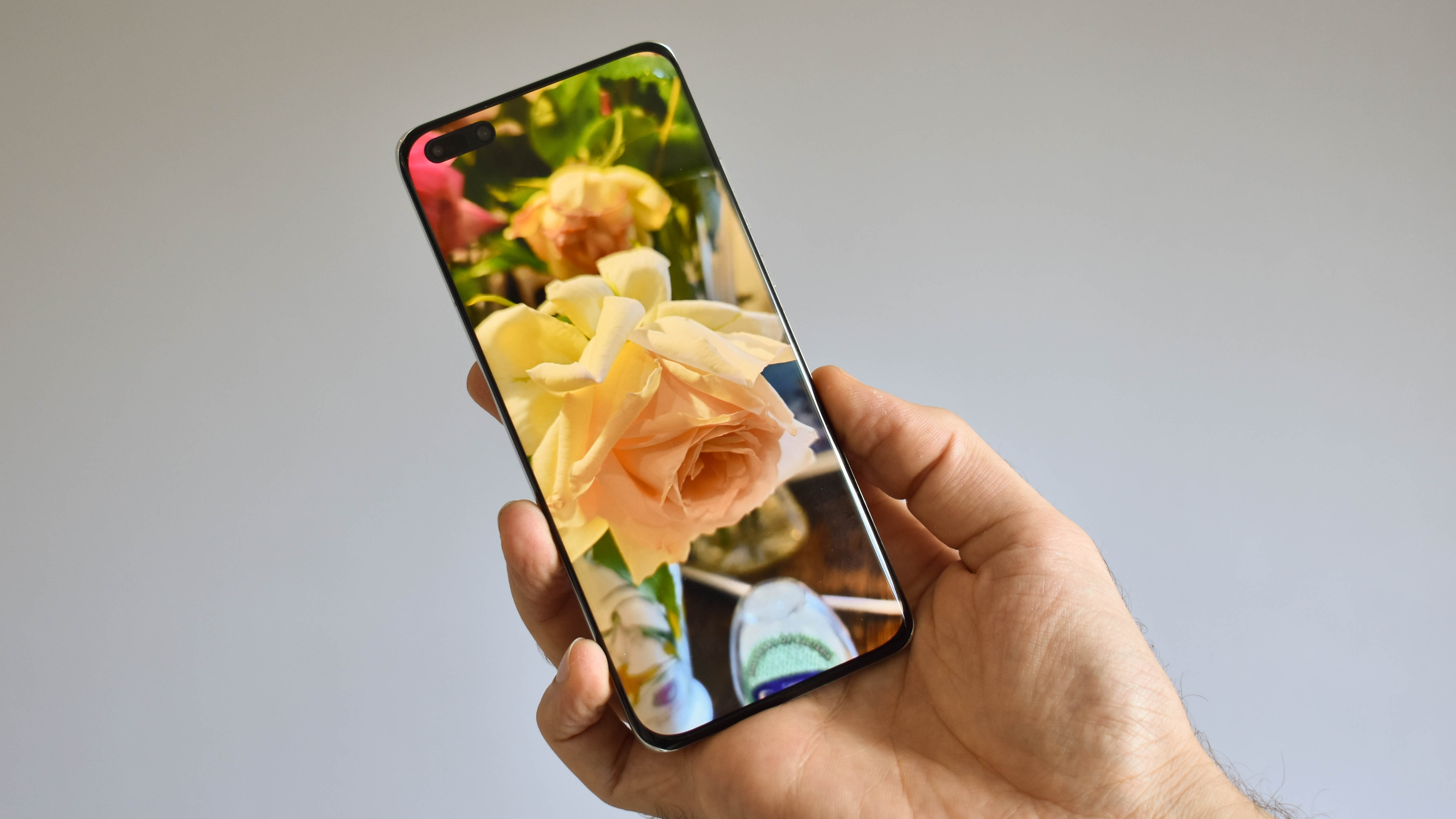
HDR10 support means the screen can showcase the full spectrum of shadows and highlights encoded into 10-bit high dynamic range content, but even non-HDR content looks stellar.
Viewing angles are great, as too is outdoor viewability, and the experience of swiping in across the screen’s peripheral curves on all four sides feels luxurious.
The only downside to the P40 Pro Plus’s screen is that hefty pill-shaped selfie-camera cut-out at the top. There’s a reason it’s so big - it packs multiple sensors for excellent selfies and secure face unlocking, but it still takes some getting used to.
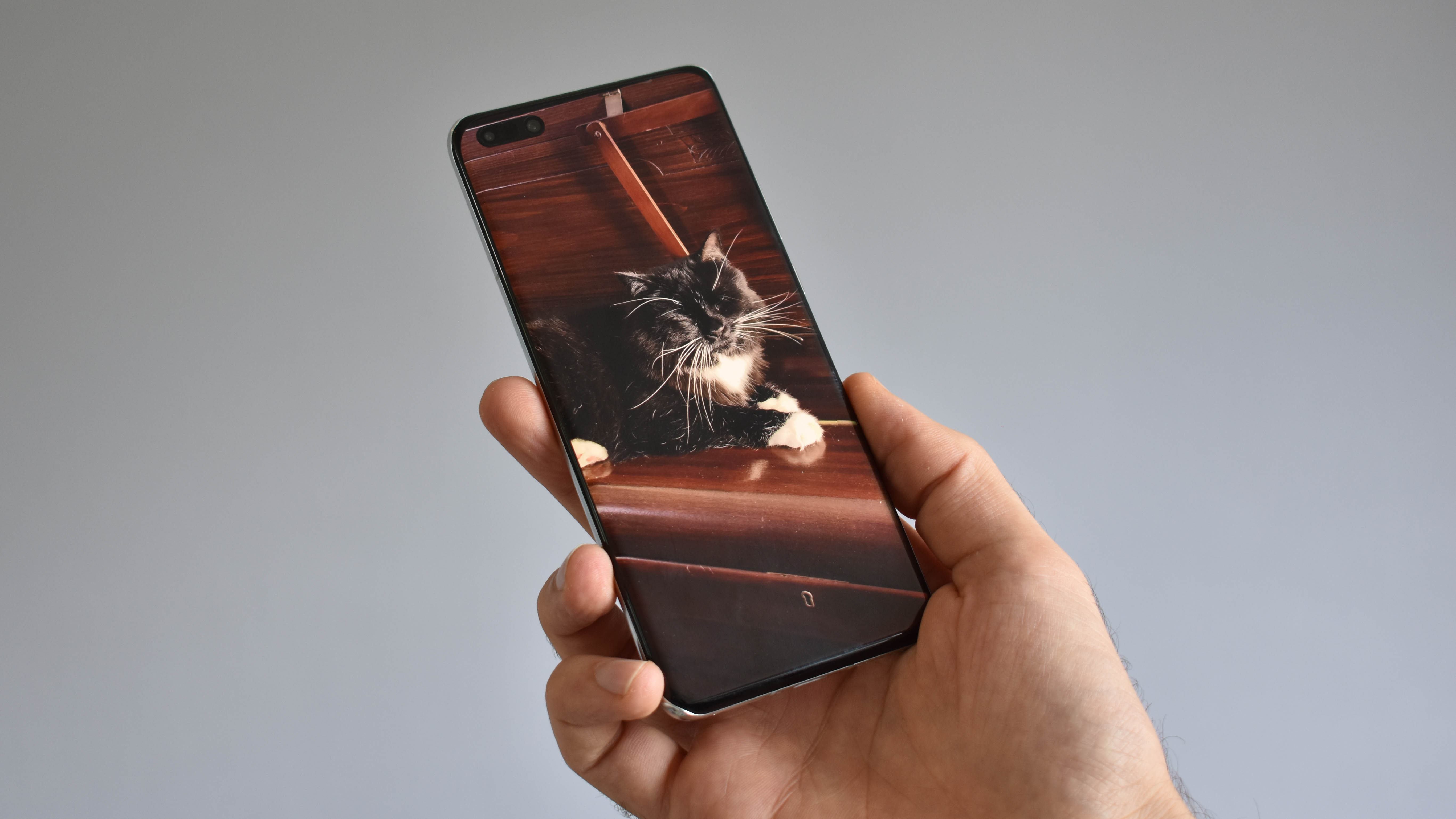
Camera
- 10x optical camera zoom
- 50MP primary camera
- 40MP ultra-wide camera
The Huawei P40 Pro Plus is the best camera phone we’ve ever reviewed - bold, but true. The phone’s 50MP Ultra Vision main Camera, loaded up with a wide-angle f/1.9 lens and OIS, is cracking. It’s identical to that of the P40 Pro and captures stacks of detail - crisp 12MP shots by default loaded up with rich, natural colors.
The phone’s 40MP ultra-wide cine camera snaps sharp GoPro-esque all-encompassing snaps. That big sensor is combined with an f/1.8 aperture lens, autofocus, and it’s also the primary camera used for videos.
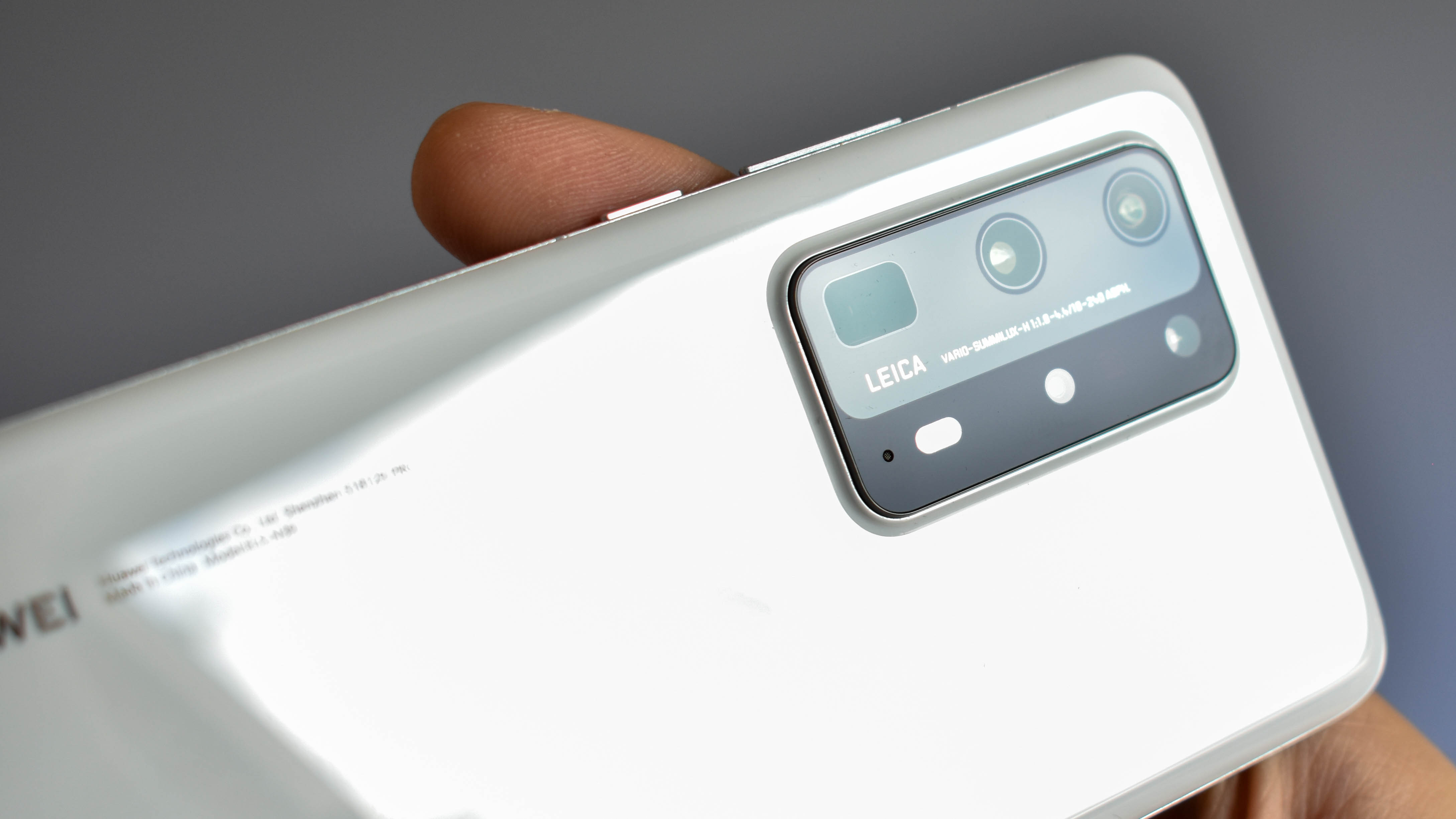
Unlike most camera phones, the P40 Pro Plus sports two telephoto snappers, both packing 8MP resolution. The first telephoto camera features a 3x zoom and an f/2.4 lens, while the second features a 10x optical zoom, combined with an f/4.4 aperture. Both feature OIS, and there’s a ToF, 3D depth-sensing camera in the mix too.
All that translates into four optical focal lengths - 18mm, 23mm, 80mm, and 240mm - an incredibly versatile photographer’s lens collection.
Naturally, the quality of all the phone’s cameras vary. The primary 50MP module is the best all-rounder. Its sensor is enormous for a smartphone, both in resolution and physical size. Detail combines with dynamic range and excellent low-light performance to handle virtually any environment you shoot in exceptionally.
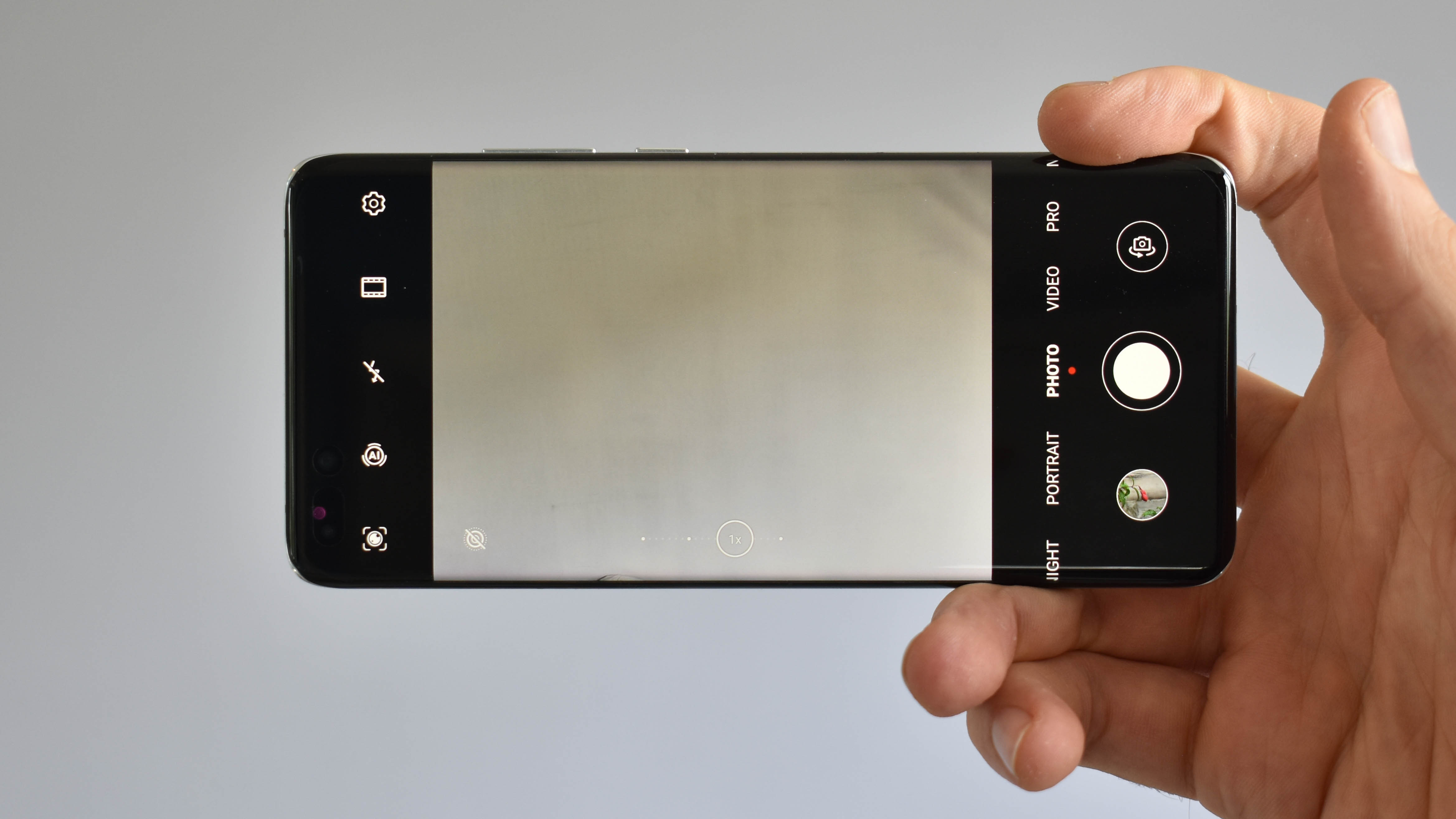
The ultra-wide camera is also impressive, capable of grabbing both up close and personal macro photography and expansive landscapes well across lighting conditions. It’s the telephoto cameras that lack some clout in low-light when shooting handheld - specifically the 10x zoom module.
In well-lit scenes, it was a dream to use, however when the lights dimmed, the 10x zoom camera’s snaps were significantly better when the P40 Pro Plus was steadied on a surface. In turn, when dealing with a shaky hand in middling light, the S20 Ultra occasionally outperformed the Pro. When steadied, however, Huawei won the day.
It’s worth noting, the P40 Pro Plus we reviewed was running pre-release software. Huawei flagged that imaging, and specifically stabilization, would be affected by an update, so we will update this review if there are any marked improvements.
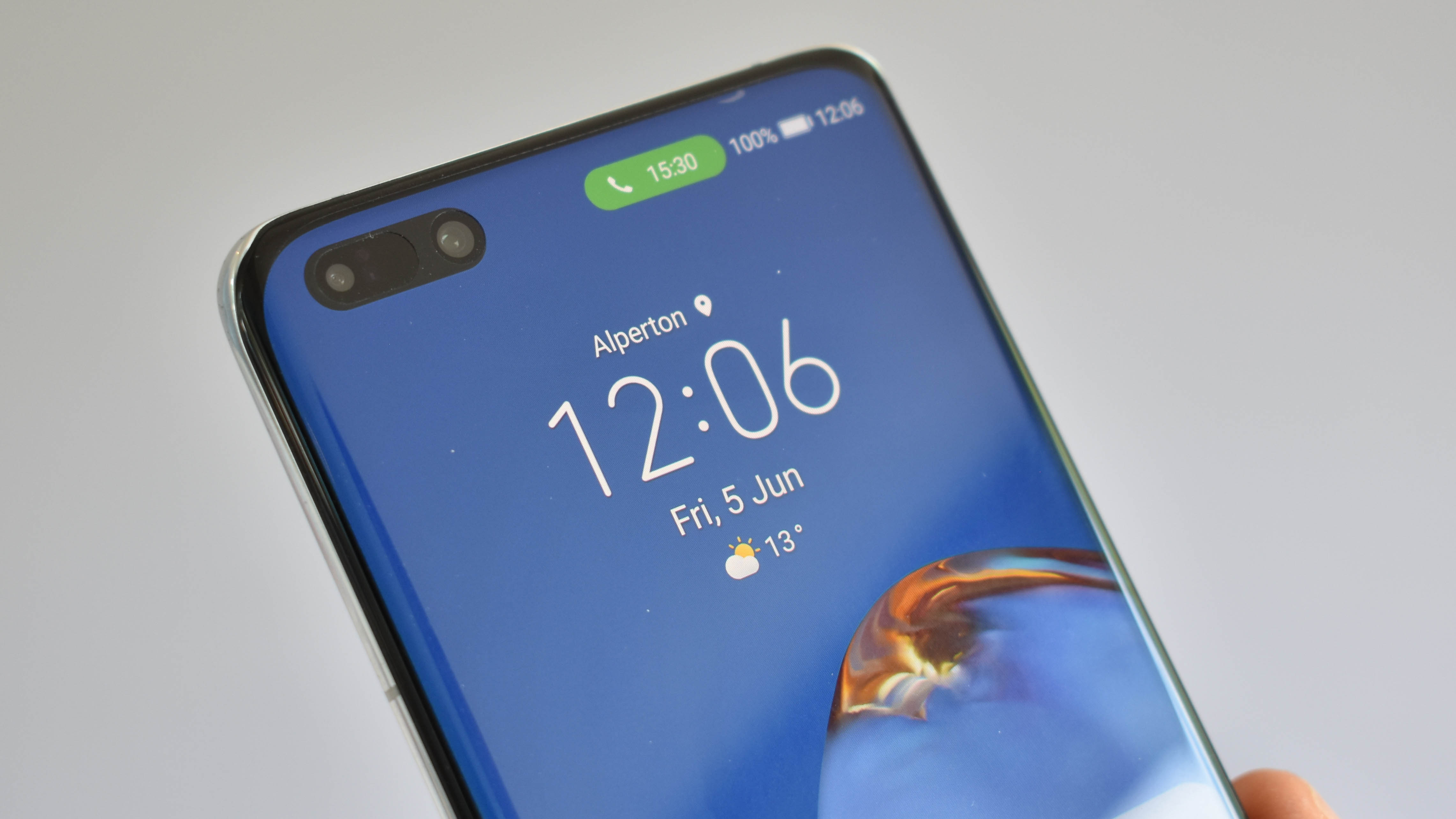
As for video recording capabilities on the Pro Plus, they’re identical to those of the P40 Pro - with support for 4K resolution at up to 60fps.
Meanwhile, the front camera is among the best we’ve ever tested, with 32MP of resolution and a secondary depth sensor for maximum impact selfies.
Camera samples






Specs and performance
- Powerful Kirin 990 chipset
- Over half a terabyte of storage
- 5G mobile data speeds
You can expect identical performance across the P40 Pro and P40 Pro Plus, given the fact both pack Kirin 990 chipsets with 8GB of RAM. Where the Pro Plus outshines the Pro is in its 512GB of storage - double that of the vanilla Pro widely available in the UK and most regions.
We found the Huawei P40 Pro Plus to be just as speedy as other top-end phones, such as the Galaxy S20 or iPhone 11 when we were darting around between apps and games. It scored 2,924 in our Geekbench 5 benchmark tests, which is a similar score to the Samsung Galaxy S20 Plus.
Both the P40 Pro and Pro Plus support Nano Memory cards, up to 256GB, and feature IR blasters, NFC, 5G, and Wi-Fi 6 support.
Software
- Android 10
- No Google Services support
- EMUI 10 is stable and smooth
The Huawei P40 Pro Plus runs Android 10, the latest version of Google’s operating system, but without Google services, including applications such as Gmail and Google Drive. This is due to the restrictions the US government has placed on Huawei amid ongoing security concerns. For many, this will be reason enough to avoid this handset.
It’s a frustrating scenario, as this is something that has been out of Huawei’s control, but it makes this phone a lot less useful to the average person in the West than a device from a rival like Apple, Oppo or Samsung.
Where will you be limited when using a non-Google phone? Wear OS smartwatches won’t work with them for starters. You also can’t restore your WhatsApp backups, as there’s no Google Drive support here.
Huawei’s own AppGallery – the company’s answer to the Google Play Store – is included on this device. It has some top-end apps, but a lot of heavy hitters are still missing. However, most of these can be found with a new addition called Petal Search - Find Apps. For example, Instagram, Facebook, and WhatsApp can be found with Find Apps.
Additionally, Phone Clone will transfer most apps from your old phone to your new one; however, not all apps work perfectly. In short, there’s a fair bit of trial and error here; difficult to stomach when a phone costs this much.
On the plus side, Huawei’s user experience, EMUI 10, is stable, smooth, and powerful. Multi-tasking using Huawei’s new sidebar is easier to activate and more powerful than on virtually any other version of Android.
The P40 Pro Plus also packs an under-display fingerprint scanner that’s super responsive, and thanks to an IR camera on the front, face unlocking is zippy too.
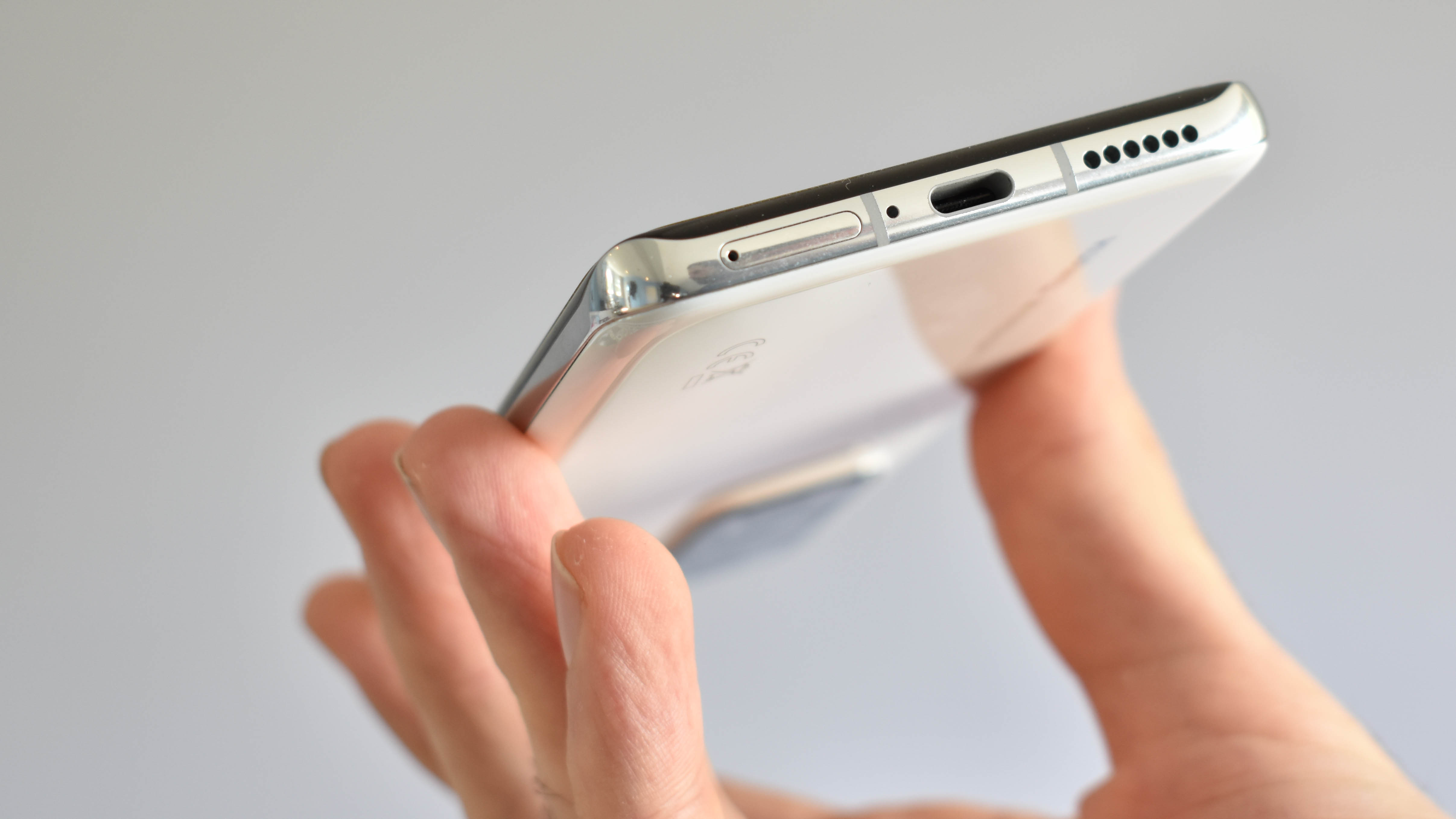
Battery life
- 4,200mAh battery
- Easily lasts a day
- Charges quickly with or without wires
The Huawei P40 Pro Plus has a 4,200mAh battery inside, and its performance is fantastic. It easily makes it through a full day of light through to intensive use, and we found it could handle heat well, even when powering through long Zoom calls and gaming sessions.
The P40 Pro Plus also supports 40W fast charging, with the charger included in the box, and there’s 40W wireless charging too.
Additionally, reverse wireless charging is nippier than on most of the competition, so you can power up accessories or other phones relatively speedily, and there are plenty of battery management tools within the settings, from Dark Mode, through to power saving mode options.
Should I buy the Huawei P40 Pro Plus?
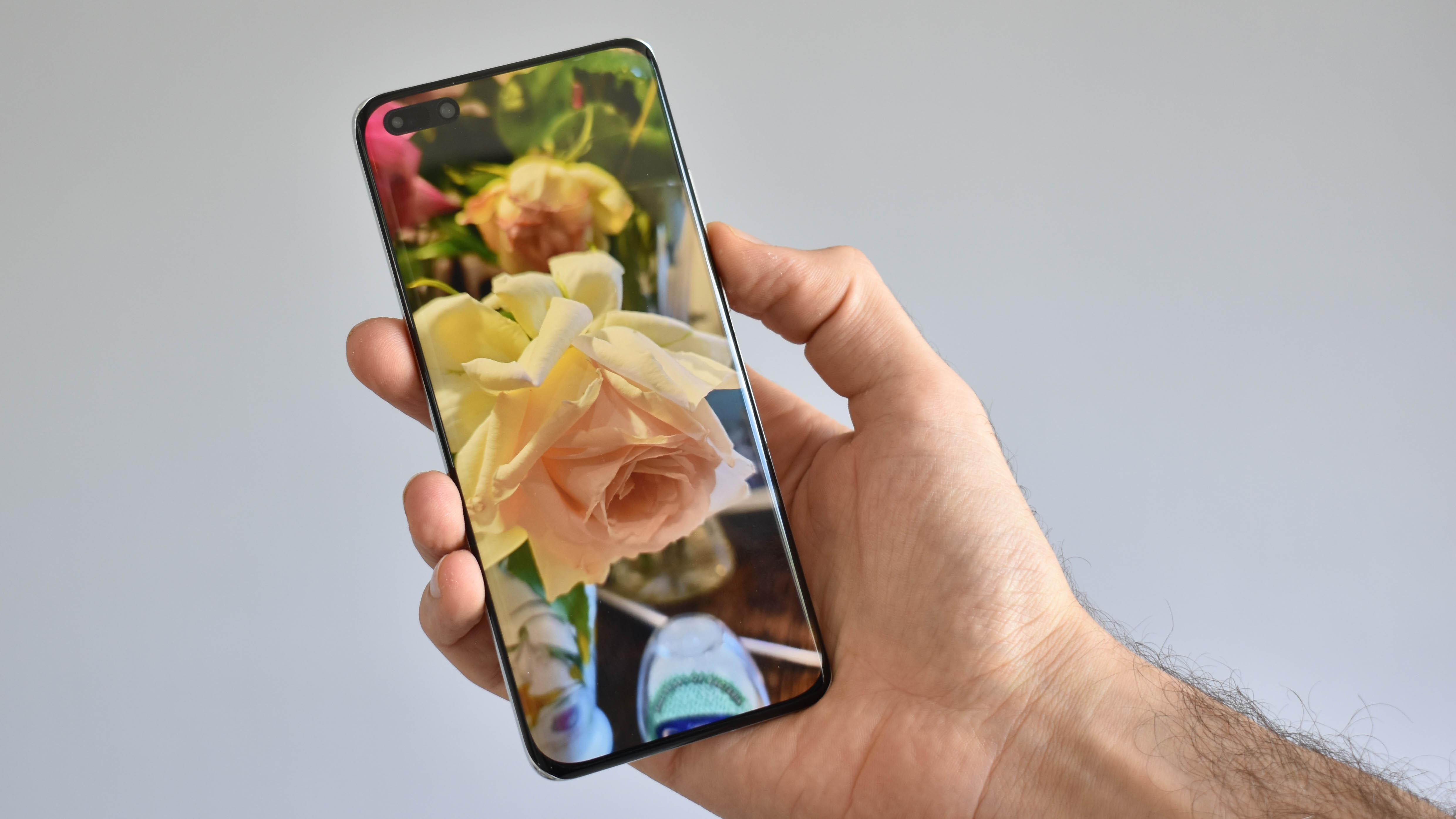
Buy it if...
You’re a tech enthusiast who likes a challenge
If words like sideloading, and acronyms like ADB make your heart flutter, there’s a good chance you’ll be able to make the most of everything the Huawei P40 Pro Plus has to offer. So if you’re not afraid to dabble with forums, figuring out workarounds for the lack of Google Services, or potentially even sideloading them, this could be your dream phone.
You want an across the board stellar camera phone
The P40 Pro Plus is our favorite camera phone out now. Its photos look more natural than those taken by the Samsung Galaxy S20 Ultra, the phone’s ultra-wide camera outperforms most in terms of detail, and the dual telephoto cameras, equivalent to both 3x and 10x optical zoom, deliver incredible images at a distance in most conditions.
You have a Huawei or Honor laptop
Huawei and Honor laptops like the MateBook X Pro and Honor MagicBook 14 talk to Huawei phones in a unique way, supporting wireless screen sharing, file transfer, and more. Just tap the NFC point on the laptop with your phone, and the two devices pair quickly and easily.
Don't buy it if...
You need Google apps
The main disadvantage of the Huawei P40 Pro Plus, just like the P40 Pro, is its limited app selection - specifically when it comes to Google. Apps like Google Meet, Google Home and the Wear OS app simply won’t work without a hack, and even then, functionality isn’t perfect.
You’re a gamer
Don’t get us wrong, the P40 Pro Plus is a capable gaming phone when it comes to power and general performance, but games that are available in the Google Play Store and not the Huawei AppGallery are unlikely to work on the P40 series. This is down to the fact they require Google Play Games to work correctly. Some titles like Asphalt 9 are in the AppGallery, but others like Injustice 2, and any made by Square Enix, for example, aren’t.
You're after an affordable phone
The Huawei P40 Pro Plus is one of the most expensive phones on the market right now, and you should consider whether you need to spend this much on your smartphone. If you want that top-end camera tech though, it may be for you.
First reviewed: June 2020
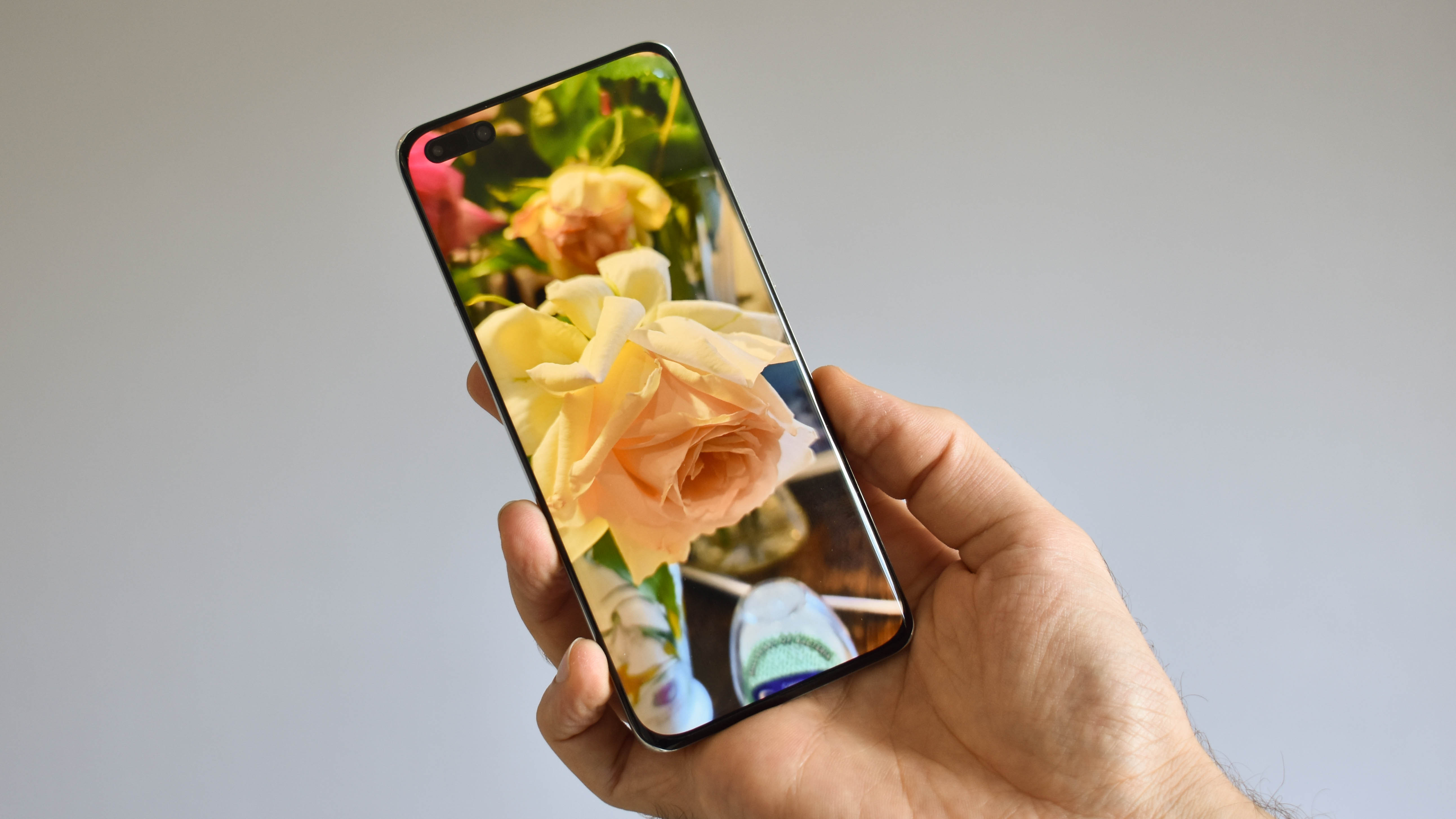
0 comments:
Post a Comment